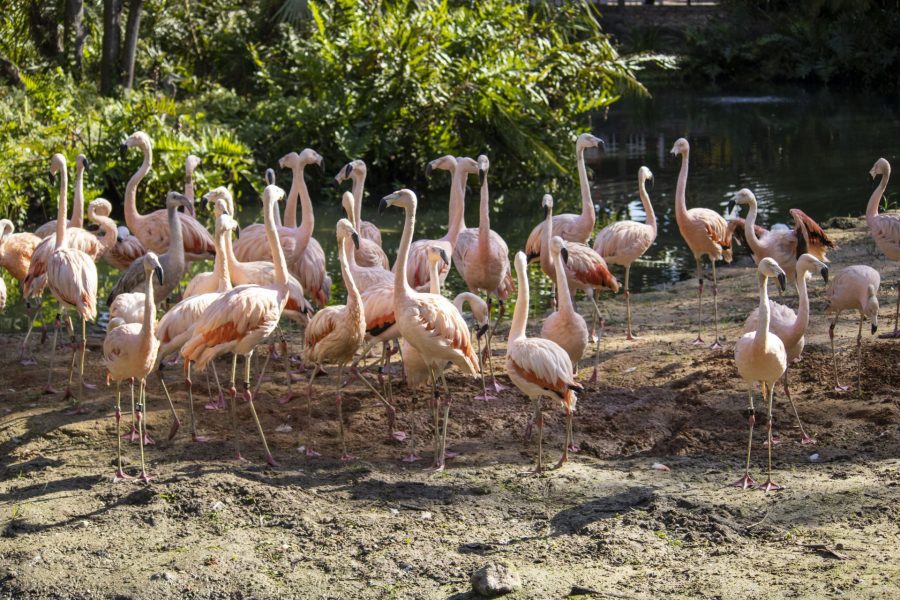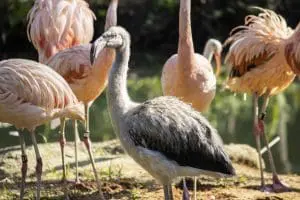

Our Chilean flamingo flock is back in their regular habitat!
Our Chilean flamingo flock is back in their main habitat!
We know you’ve missed seeing them since they were housed in their night house to protect them from a particularly rampant bout of avian flu. While avian flu cases haven’t completely left our area, they’re low enough that our animal care team deemed it safe to give them access to the main habitat for now.
“It is a balancing act of needing to protect them from HPAI but also wanting to let them back outside,” said Megan Stankiewicz, one of our animal curators.
The topic of avian flu and risk assessment is an on-going conversation, Megan said. Our animal care team is in touch with local wildlife rehabilitators and Florida Fish and Wildlife Conservation Commission to monitor cases in the area. There is the possibility that they may need to return to their night house if cases rise again, but the flamingos are enjoying their newly renovated habitat for now.
 With the hatching of our first flamingo chick in September, we also shared that their habitat would undergo some changes in order to continue improving their wellbeing – and hopefully see more chicks in the future.
With the hatching of our first flamingo chick in September, we also shared that their habitat would undergo some changes in order to continue improving their wellbeing – and hopefully see more chicks in the future.
Our young chick is doing well! He eats adult food – meal, pellets and krill. He spends his days with the rest of the flock, following them along and mimicking their behaviors. You can spot him now out on the island – see if you can spot the pink feathers at the base of his wings along his back!
We’ve leveled out their main landmass – and made it a true island with no land bridge to the night house. A new clay substrate covering the island should make for some good material for nesting season!
Barring any further quarantining from avian flu, the flamingos will remain in the habitat overnight. Hotwire around the perimeter of their habitat will go live at night and offer the flamingos protection from possible predators. Cameras will also be set up to monitor their behavior overnight.
While our flamingos are no longer nesting, we hope to see nests on their island in the future – and these improvements to their habitat should encourage them to do so. The breeding season for this species in human care is usually May through August.
In the meantime, we hope you enjoy seeing the flock interacting with each other on their island and bathing in their pond.
Brevard Zoo is an independent, not-for-profit organization that receives no recurring government funding for our operating costs. Your generous support enables us to continue to serve our community and continue our vital animal wellness, education and conservation programs.
